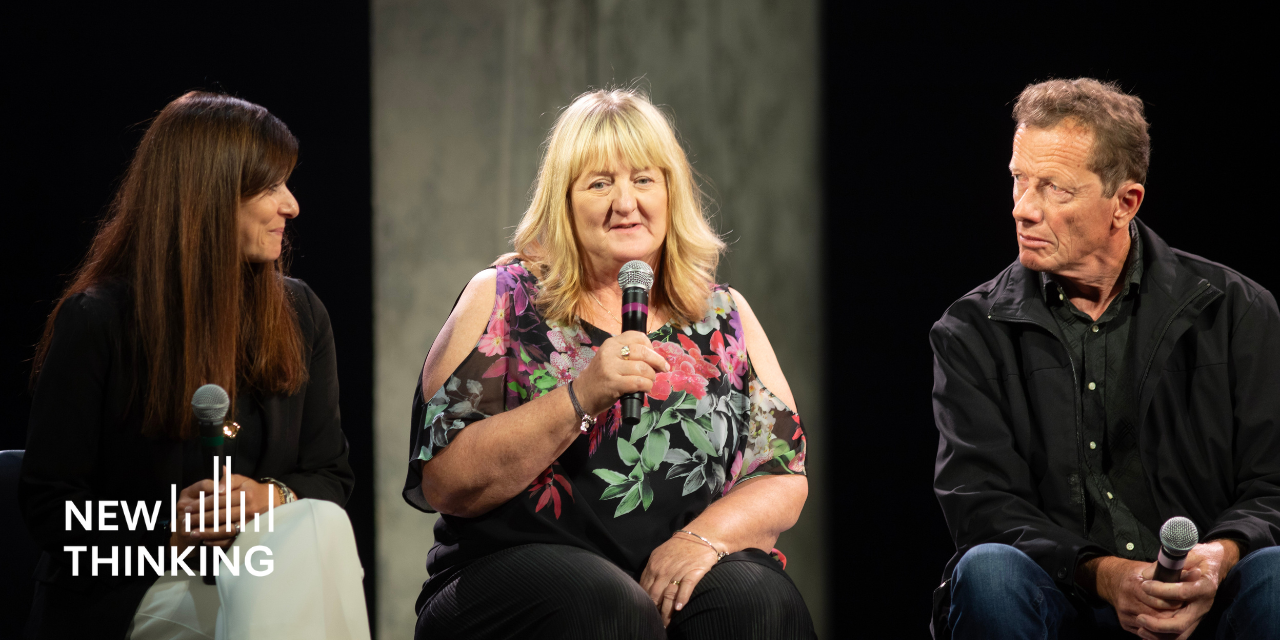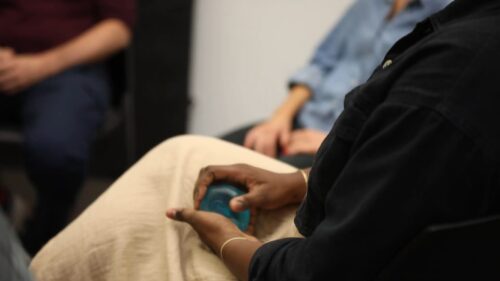Bonnie Dumanis was sworn in as the district attorney for San Diego County in January 2003—and is the first woman to serve in this role. Prior to serving as San Diego’s top prosecutor, she served as a judge. In this capacity, she was a driving force behind the creation of local drug and domestic violence courts. Dumanis sat down with Carolyn Turgeon of the Center for Court Innovation to talk about her experiences.
Can you describe your experience in problem-solving courts?
I was a Municipal Court judge for four years and a Superior Court judge for four years. I’ve done the domestic violence court, the drug court, the homeless court, and I did the juvenile court for five years. And when you see that you can make a difference, it’s very rewarding. It was challenging only in regard to my colleagues, and it continues to be a challenge for judges who are in those positions. It’s still not considered to be the normal thing for a judge. Judges don’t generally worry about recidivism; they worry about processing their cases.
How has your experience in problem-solving courts influenced you as district attorney?
I believe it is important to remember that our role is not just to prosecute but to prevent crime. And in working together on problem-solving courts, thinking outside of the box, we make a much bigger difference than just prosecuting one case at a time.
Can you give an example?
When I entered office, I inherited a $14 million deficit. One of the things we had to cut back on was community prosecution, so we had to be creative. Now, while we no longer have dedicated community prosecutors, we do have community outreach people. I have two full-time people who go out and engage the community to find out what its needs are, to make sure we address them. They go to community meetings in the various neighborhoods. They work with community leaders. The county is as big as the state of Connecticut, so they’re pretty busy.
We’ve also initiated a community advisory board, to make the community part of the solutions and the issues that relate to the District Attorney’s Office.
What is the community advisory board? How does that work?
The advisory board is made up of people from the business community as well as other community representatives. The board comes together every other month to be the eyes and ears of the D.A. and we’ve also had board members facilitate us going out into the public to talk about issues that are important, like identity theft.
We’ve had town hall meetings in all areas of the county. We’ve had about eight now where we bring together all the players that deal with criminal justice issues, like the sheriff, animal control, code enforcement, planning, all those groups as well as the district attorney to answer questions the community may have about what’s going on and how we can help them.
What do you say to those who feel like involving the community in your work is too much of a challenge?
We’ve expanded the role much more within the community than it’s ever been. It’s only a challenge if you don’t believe in it but it’s something I believe in and the community loves it. They’re very receptive.
What are some other strategies you employ to involve the community?
Another thing we participate in is the Family Justice Center, which is the one-stop shop started by the former city attorney for victims of domestic violence. That’s been very successful. These centers are cropping up all over the country. We’re trying to regionalize that approach here in San Diego County. Our former city attorney created a foundation called the Family Justice Foundation, which is a public-private partnership that’s received a lot of money from the community. The facility is being built now, and there will be 27 community programs represented as well as the police and city attorneys that handle domestic violence. We have an attorney that helps as well, as a victim advocate. It’s not court-related, but a program that brings the community together to work on issues on behalf of victims of domestic violence.
You came on board in 2003. Have you experienced any resistance to your problem-solving approach?
I think that, just like on the bench, within the office there are those who don’t view this as part of the role of the district attorney. But here I’m the boss, so it’s a little different! But for those who aren’t interested in it, we have plenty of other things to do. There are plenty of places to go if you just want to be a trial lawyer. But those people who have been involved in the problem-solving areas have been very satisfied with their efforts.
Can you describe some of your other programs?
We are working on a reentry program. We have a drug court. In the juvenile court, we have drug court, we have a teen relational violence court and one that deals with teen prostitution. The teen prostitution program is fairly new. We’ve noticed that gangs are trying to pull young kids into being prostitutes and pimping them, so we’re trying to work with the prostitutes to get them out of the business.
We have a lot of programs. Elder abuse is one that we do a lot of community outreach for. We actually have a nurse practitioner who works for us and who goes out into the community to talk about elder abuse and to train mandatory reporters, like bank tellers and social workers and doctors.
We also have several task forces that bring together law enforcement agencies to work on problems together. We have 42 investigators that come from various local state and federal agencies to deal with computer and identity theft. That has an education component as well. They go out and talk to the community and have a steering committee that involves the business community as well as the law enforcement community and they’ve done a fabulous job of solving identity theft and crimes. But in all areas we have task forces that bring together all the different agencies from law enforcement on gang intervention, on narcotics intervention. You name it, we have a task force for it.
How could problem-solving justice be expanded in San Diego?
I’d like to some day see a mental health court. We don’t have one here in San Diego and until we get some money we probably won’t see that happen. I think there are a lot of different things we have left to do. I’d like to see a DUI court at some point. For right now staying afloat is the biggest priority because of the serious financial issues in California.
None of the programs we are putting into effect now cost money. We are implementing them with the resources that we have. And that’s the best approach, to try to reorganize things so that you can do what you need to do without getting outside money. I mean it’s certainly nice to have grants but what I’ve found in just the short time that I’ve been the D.A. is that when you become grant-dependent when those grants go away either the program goes away or you have to take away from some other program and our core function as the prosecution is prosecuting criminals.
2005

